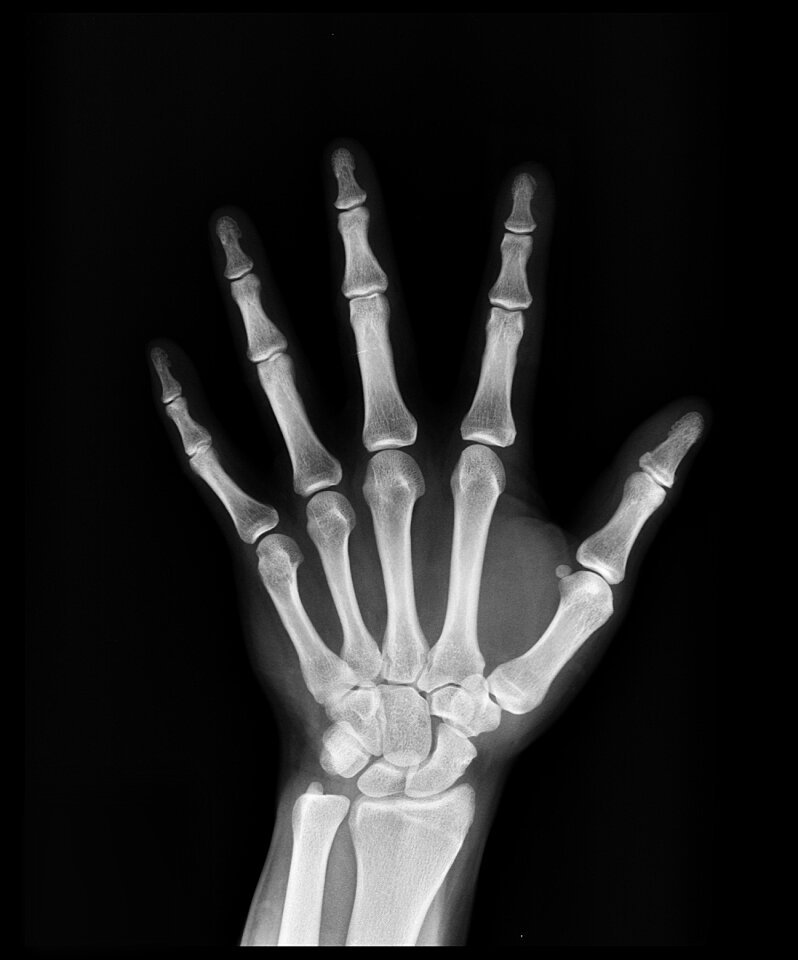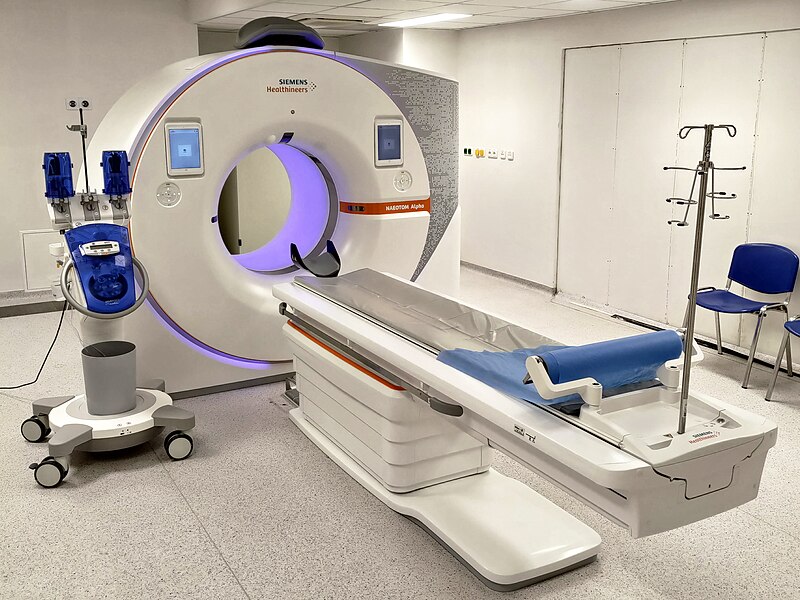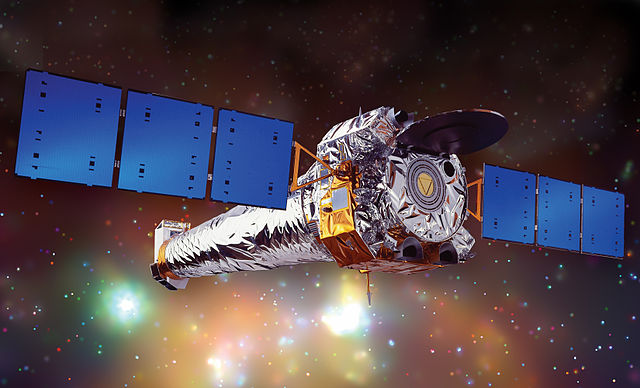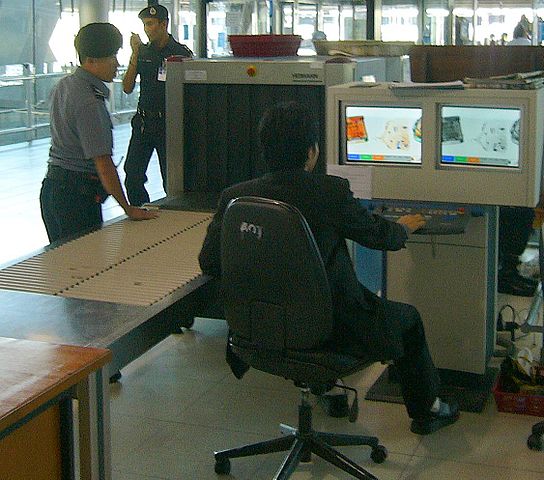X-rays are high energy waves that are invisible. They are useful because they can pass through many things that normal light cannot. For example, doctors can see inside the human body and security guards at airports can see inside your handbag.
Image: Openclipart , Public Domain
Discovery
In 1895, a German scientist, Wilhelm Roentgen, discovered X-rays by accident. He called them X-rays because he hadn’t seen such a form of energy before. In mathematics X means something unknown. Roentgen took his first X-ray pictures of the bones of his hand. In 1901 he received the first Nobel Prize for Physics for his discovery.
X-rays in medicine
X-rays are valuable in medicine because they can see through certain parts of the body. Doctors can take pictures of bones, teeth and tissue. They use these pictures to see which bones are broken or to find out which teeth have holes in them.
To produce X-ray pictures you need two things: a special plate that can capture X-rays is placed behind a part of a person’s body. A machine that produces X-rays is put in front of the person.
The X-rays are strong enough to pass through the skin and muscles but they cannot pass through hard objects like bones. In the picture you see hard objects, like bones, as white areas. Objects that X-rays go through are dark.

X-ray of a hand
Image: Creazilla , Public Domain
There are some situations in which X-rays cannot give you a clear picture. Some organs, for example, may block X-rays from showing a broken bone. For this reason computed tomography (CT) was invented. A person is put inside a scanner, which is a large tube-shaped machine. Then he is X-rayed from all sides. A computer puts together all of these images and can show doctors more than a normal X-ray can. CTs are used for brain diseases and head injuries.
X-rays, however, can also do harm to your body. Patients must wear special protection for the parts of their body that are not X-rayed. Doctors and helpers who work with X-ray machines must wear lead aprons and stand behind screens.
X-rays are sometimes used to in the fight against cancer. Doctors often beam X-rays at cancer cells in order to destroy them.

CT scanner
Image: Tomáš Vendiš, CC BY-SA 4.0, via Wikimedia Commons
X-rays in science
Scientists often use X-rays to study the structure of other organisms or minerals that are in rock. By bombarding material with X-rays you can tell how old an object is.
Since the 1970s X-rays have been used to study stars and galaxies that are very far away. X-ray telescopes are put on board satellites that orbit far above the earth’s surface. They can see things that telescopes on earth cannot detect, because X-rays are absorbed by the earth’s atmosphere.

Chandra x-ray telescope, launched by NASA in 1999
Image: NASA/CXC/NGST, Public domain, via Wikimedia Commons
Other uses
Factories use X-rays to find cracks in machines or in metal objects. At airports X-ray machines scan millions of handbags and suitcases for weapons like bombs, guns or knives.

Luggage screening at an airport
Image:User:Mattesderivative work: Cherubino,
Public domain, via Wikimedia Commons